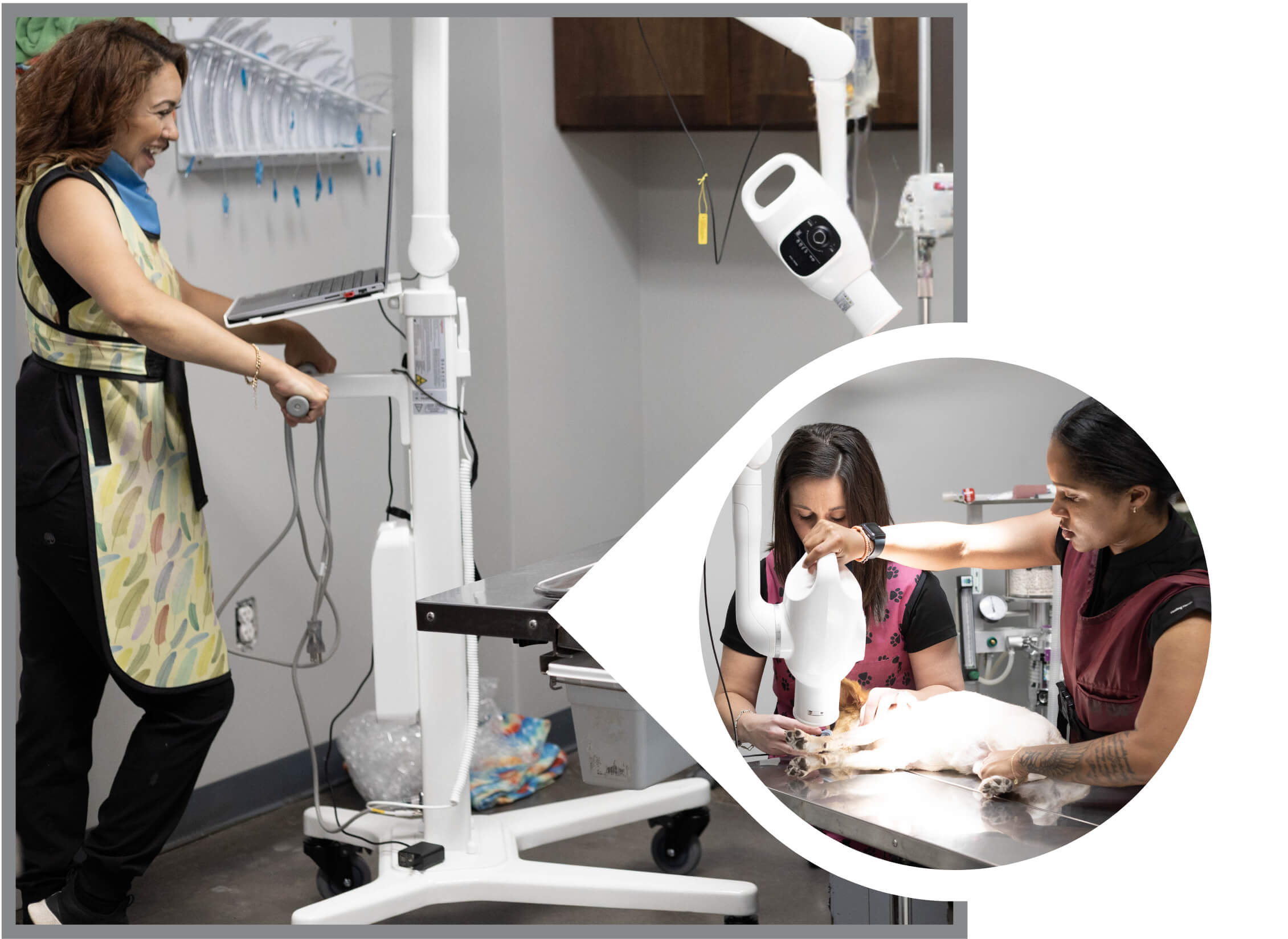Dog Dental Care at Whittington Veterinary Clinic
 Even the most attentive pet parents often overlook dental health. But just like in humans, dental disease in dogs can affect more than just the mouth — it can impact the heart, kidneys, liver, and overall well-being.
Even the most attentive pet parents often overlook dental health. But just like in humans, dental disease in dogs can affect more than just the mouth — it can impact the heart, kidneys, liver, and overall well-being.
Why Dental Health Matters
Dental problems can cause pain, bad breath, and behavioral changes. More importantly, bacteria in the mouth can enter the bloodstream and affect your dog’s organs. Preventive dental care helps extend both the quality and length of your dog’s life.
Signs of Dental Trouble in Dogs
- Bad breath
- Difficulty chewing or drops food while eating
- Red or swollen gums
- Discolored or loose teeth
- Avoiding toys or eating on one side of the mouth
At-Home Dental Care
Daily brushing with dog-safe toothpaste is ideal. If that’s not possible, dental chews, water additives, and dental wipes can help. Look for products approved by the Veterinary Oral Health Council (VOHC).
Common Dental Problems
- Gingivitis (gum inflammation)
- Tartar buildup
- Broken or fractured teeth
- Tooth root abscesses
- Oral tumors or cysts
- Mouth injuries from chewing
Why Early Detection Is Key
Catching dental disease early allows for simpler, less invasive treatment—often just a cleaning. Advanced disease may require extractions and more complex care. Annual dental exams and cleanings are essential.
How Often Should My Dog’s Teeth Be Checked?
At your dog’s annual wellness exam, we carefully evaluate their teeth and gums to catch early signs of dental disease and recommend the best preventive care for lasting oral health.
If your dog is prone to dental issues, our doctors may recommend more frequent checks to help stay ahead of problems.
Dental Disease Stages in Dogs
- Stage 1: Gingivitis (Mild)
- Red or inflamed gums
- Mild plaque and tartar buildup
- Still reversible with professional cleaning and consistent home care
- Stage 2: Early Periodontal Disease (Moderate)
- Increased tartar and gum inflammation
- Mild gum recession and possible discomfort
- Requires dental cleaning and may need follow-up care
- Stage 3: Established Periodontal Disease (Severe)
- Heavy tartar, gum recession, and possible tooth mobility
- Bad breath and signs of pain may be present
- Likely requires deeper cleaning and may involve extraction
Early intervention at Stage 1 or 2 can prevent painful and costly issues down the road. Ask us about your pet’s dental stage during their visit!
A Closer Look at Your Dog’s Dental Procedure
During a dental cleaning, we use ultrasonic scaling under anesthesia to remove tartar from above and below the gum line. The teeth are then polished to smooth the surface and help prevent future plaque buildup. We also perform dental charting and a full oral exam under anesthesia to thoroughly assess your dog’s oral health in a safe, stress-free way.
More about Anesthesia: Here
Celebrate Dental Health Month with Us!
Each February, we offer a complimentary dental staging exam with a nurse and a discount to your dog’s dental cleaning (excluding extractions). It’s the perfect time to prioritize your pet’s oral health!
At Whittington Veterinary Clinic, we take your dog’s dental health seriously — because a healthy mouth means a healthier, happier life. Regular exams and cleanings can prevent pain, disease, and costly procedures down the road.
Have questions or think your dog may need a dental checkup? Call us at (337) 893-8522 — we’re here to help!
